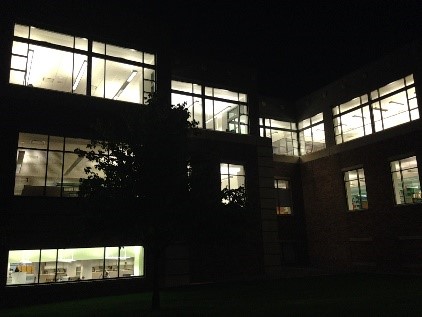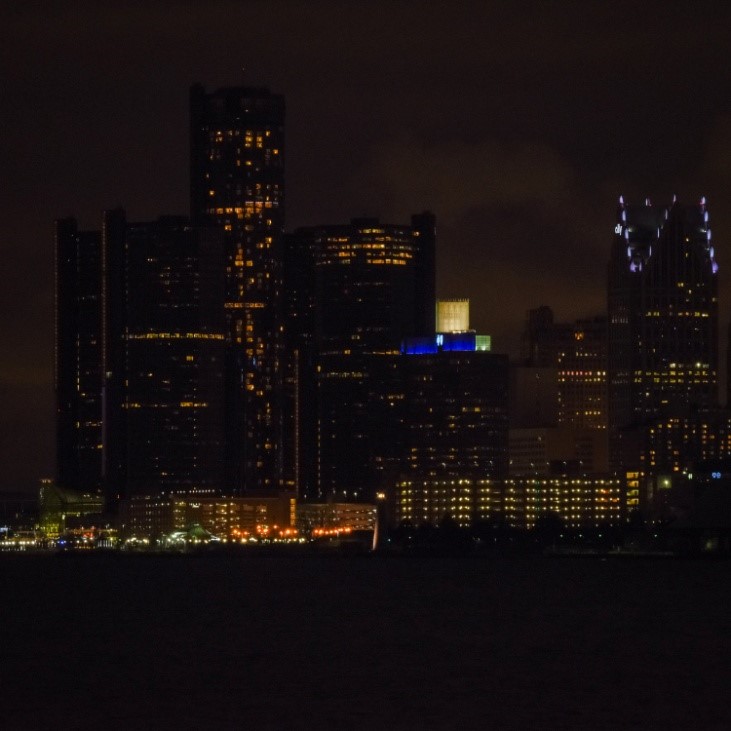By: Detroit Audubon, fostering the appreciation and conservation of birds and the environment we share since 1939.
When you think of robins returning for spring it probably doesn’t cross your mind to cut unnecessary outdoor lighting and dim or redirect essential lighting, does it?
While many songbirds only stop briefly in Michigan on their journey from South America to the boreal forests of Canada, the stop can be a fatal one. In fact, bird-window collisions kill up to 4 billion birds annually in the continental U.S. To help our feather friends, Detroit Audubon and Washtenaw Safe Passage have partnered with other groups in Southeast Michigan to make our corner of the planet safer for birds. It’s easier than you think, and even one building can make a big impact.
What is Safe Passage?
Safe Passage is a collective approach to minimizing human risks to birds. While most programs focus on window collisions, the Safe Passage philosophy includes a little bit of everything:
- Lights Out programs: this dark sky policy for commercial buildings throughout spring and fall migration can save dozens to hundreds of birds per year, per building!
- Window collision monitoring and mitigation: this includes screens, decorative window film, window art and other efforts that help prevent birds from hitting glass.
- Practice safe bird feeding: move feeders as close to windows as possible (three feet or closer), and bleach bird feeders once a month.
- Green gardening: try owl boxes instead of rodenticide, bluebird and wren boxes instead of insecticide, and using native plants instead of ornamentals.
If onewindow at an average single-family residence has been hit by a bird, and that window is subsequently screened, marked with ABC Bird Tape, Acopian Bird Savers, CollidEscape, or Feather Friendly dots, 80 birds can be saved in the span of a decade!
Safe Passage Saves

One high-rise building in Washington D.C. turned off its lights between 10 p.m. and 6 a.m. during the months of March, April and May and saved 27 percent on its electric bill, as well as saving hundreds of birds. Doing the same for August, September, October and November will save even more as the population will be boosted by all of the newly-fledged birds from the summer starting their first migration.
You can find out more ways to help by visiting DetroitAudubon.org and encouraging your neighbors and local businesses to do the same. There’s even an Honor Roll to recognize the steps taken by local businesses towards being mindful of our feathered friends during their journeys.
Follow us on Facebook for more information: Detroit Audubon, Washtenaw Safe Passage, Just Save Birds, Bird Center of Washtenaw County.
Editor’s Note: The GMRENCEN promotes Safe Passage principles to all tenants and those working in the building.





